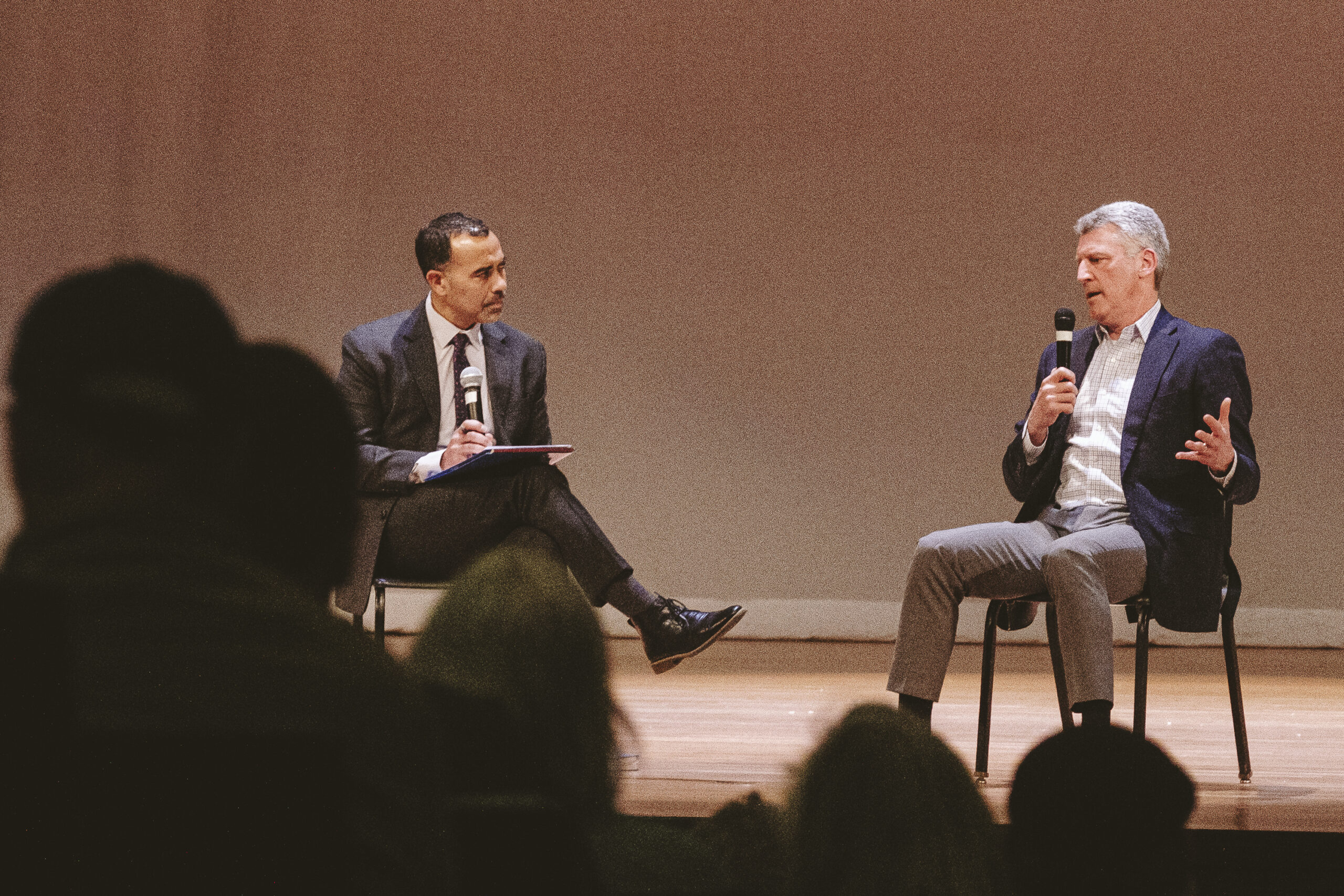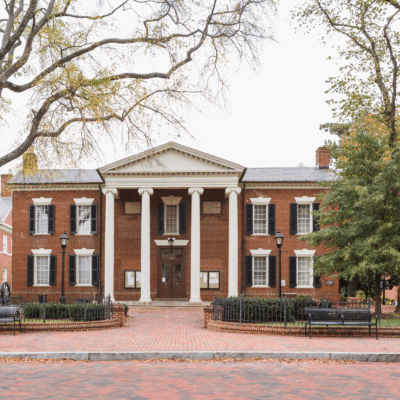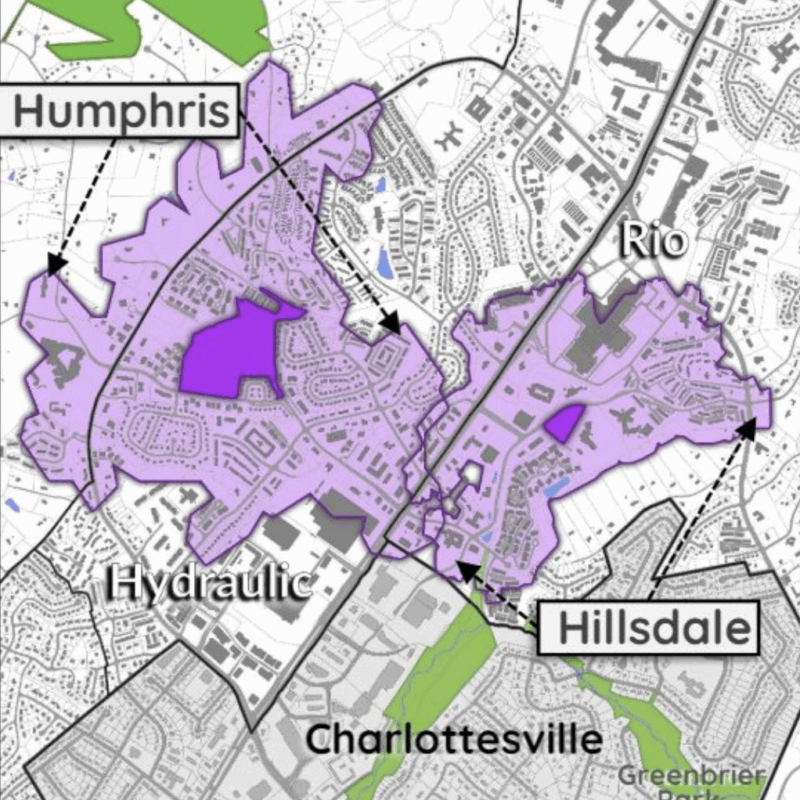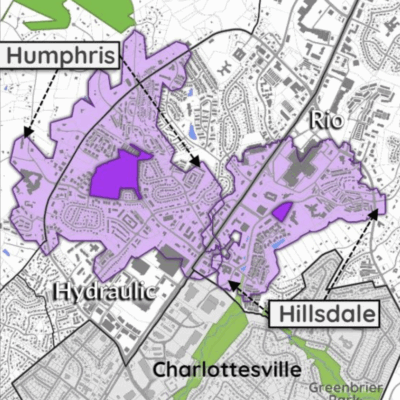In his new book Harbingers, Charlottesville resident Tim Heaphy outlines his work as the lead investigator of August 12, 2017, and January 6, 2021, and what the commonalities between the two incidents mean for the future of American democracy.
“These two events are linked in history, and I felt like I had this unique ability to put them in a common context,” says Heaphy.
In his first local talk about Harbingers, at the annual meeting of the Albemarle Charlottesville Historical Society on January 16, Heaphy spoke about the book, the investigations, and where we go from here. He also outlined the conclusions of the January 6 investigation. Since taking office, President Donald Trump has pardoned a number of people convicted of charges related to January 6.
A longtime prosecutor, Heaphy was hired by the City of Charlottesville to investigate its handling of the 2017 Unite the Right rally. His experience working on the A12 report prompted the office of Nancy Pelosi, then speaker of the House, to bring Heaphy in as the chief investigative counsel for the select committee on the January 6, 2021, attack on the U.S. Capitol.
While he covers a number of similarities between the events of A12 and January 6 in Harbingers, Heaphy highlights the role of communication—both between law enforcement officials and the general public—in each incident. He says law enforcement agencies and leadership had intelligence and failed to act, but for the perpetrators of violence, online coordination, misinformation, and distrust in systems all contributed to escalation.
“There’s also a lot of misinformation on [social media]. There’s very little content moderation,” Heaphy says. “Lots of people are getting led down these rabbit holes of information that reinforce their perspective or even exaggerate reality. And that’s not the social media platform’s fault. That’s the way they operate. But we need to be more educated collectively, as we navigate that ecosystem of information.”
Misinformation played a significant role in the escalation of violence on January 6, and was further stoked by the spread of disinformation by Trump.
“A lot of people at the Capitol sincerely believed that the election had been stolen. They saw it as they were doing their civic duty as patriots to prevent an injustice. … There’s no basis for that. There’s no objective fact that supported that. But they didn’t trust the messengers that were counteracting that,” says Heaphy. “All people can do individually is make an effort to ensure that they’re getting balanced sources.”
“The summary report is that this was an intentional multi-part plan led by [Donald Trump] … to disrupt the joint session and prevent the transfer of power. It started with filing claims of election fraud in court around the country. All unsuccessful. Moved to [put] pressure on state officials to do recounts or investigations of voter fraud. Unsuccessful. The states were certifying the results as victories for president-elect Biden, then focused on the Justice Department, the vice president, trying to get them to take actions without basis in law or fact, including asking the vice president to object to certified slates of electors. None of that worked,” said Heaphy.
The final attempt at disrupting the transfer of power was the direction of an “angry mob at the Capitol to disrupt the joint session.”
Some may view the reelection of Trump as repudiation of the January 6 committee’s findings, but Heaphy believes that’s a mistake. “I think it’s really hard to ascribe one unified motivation as to why President Trump was reelected,” he said. “I always felt like we’re speaking to a legacy audience, not just a short-term audience. I’m still proud of that work. I feel like it will stand the test of time factually, and that it will hopefully help people understand in the future.”
Beyond misinformation and anger, Heaphy views apathy and cynicism as the most salient threats to American democracy. “We have to resist both apathy and anger as a response to current events.” Rather than disengaging, he encourages Americans to engage with democracy by voting and responsibly consuming information.
Ahead of inauguration day, Heaphy told the local audience on January 16 that he wouldn’t ask for a pardon.
“Emphatically no. Not interested in a pardon. I do have a lawyer who’s prepared to help me respond to inquiries,” he said. “I still think in America, it takes actual facts to have real exposure, actual culpability. Those facts [are] not present here. So I don’t want a pardon because I haven’t done anything that’s remotely close to culpable. I do expect some level of convenience disruption, which is meant to be intimidating.”
Though not directly named, Heaphy may be included in Biden’s preemptive pardon of members and staff of the January 6 committee.






